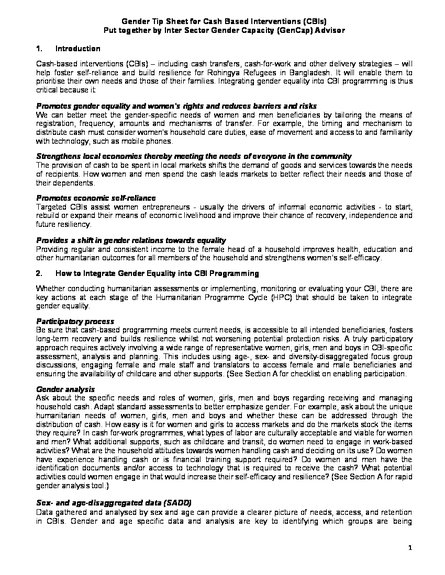
Cash-based interventions (CBIs) – including cash transfers, cash-for-work and other delivery strategies – will help foster self-reliance and build resilience for Rohingya Refugees in Bangladesh. It will enable them to prioritise their own needs and those of their families. Integrating gender equality into CBI programming is thus critical because it:
- Promotes gender equality and women’s rights and reduces barriers and risks: We can better meet the gender-specific needs of women and men beneficiaries by tailoring the means of registration, frequency, amounts and mechanisms of transfer. For example, the timing and mechanism to distribute cash must consider women’s household care duties, ease of movement and access to and familiarity with technology, such as mobile phones.
- Strengthens local economies thereby meeting the needs of everyone in the community: The provision of cash to be spent in local markets shifts the demand of goods and services towards the needs of recipients. How women and men spend the cash leads markets to better reflect their needs and those of their dependents.
- Promotes economic self-reliance: Targeted CBIs assist women entrepreneurs - usually the drivers of informal economic activities - to start, rebuild or expand their means of economic livelihood and improve their chance of recovery, independence and future resiliency.
- Provides a shift in gender relations towards equality: Providing regular and consistent income to the female head of a household improves health, education and other humanitarian outcomes for all members of the household and strengthens women’s self-efficacy.